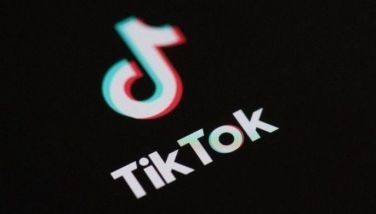Globe Business ushers in age of health informatics
MANILA, Philippines - There used to be a time when information technology and health science, or medicine, were two distinct disciplines. In recent years, however, particular interest has been given to human-computer interaction, the Internet, software and programs, wireless and mobile communications, the manner people process information and new IT solutions, including the cloud, are leading to advancements in both fields making them intersect and converge — bringing to fore the focus on health informatics.
The World Health Organization defines health informatics as “an umbrella term used to encompass the rapidly evolving discipline of using computing, networking and communications — methodologies and technologies — to support the health-related fields.†In medical circles, it is also known as clinical informatics, medical informatics or biomedical informatics.
Those specializing in this field further dissect it as the appropriate and innovative application of the concepts and technologies of the information age to improve healthcare and health as a whole. It also gave rise to the context of “e-health,†which is related to the collection, analysis and movement of health information and data to support healthcare.
Going further, health informatics combines the fields of IT and health to develop systems required to administer the expansion of information, advance clinical workflow, among others.
It also involves the integration of information science, computer technology, and management of healthcare data to collect, store, organize, share, secure, transmit and analyze clinical knowledge, and information systems through the application of computers and other technologies. In other words, health informatics emphasizes brokering of information, the sharing of a variety of information back-and-forth between people and healthcare entities.
Technically speaking, Stanford Medical Informatics claim that health informatics also deals with biomedical information, data and knowledge, their storage, retrieval and optimal use for problem solving and decision making, touching on all basic and applied fields in biomedical science and is closely tied to modern information technologies, notably in the areas of computing and communication.
Research has it that healthcare professionals need to know more today to perform their daily jobs than at any previous point in history. Advancements in knowledge, skills, interventions and drugs are growing at an exponential rate.
As such, health informatics is slowly gaining traction in the medical field as it is evolving to become an important component of many aspects of healthcare, partly due to the multiple challenges facing the practice of medicine today.
Authorities on this field aver that the volume of medical knowledge and particular information that has occurred due to better understanding of human health has resulted in more treatments and interventions that produce more information. The increase in specialization has also created the need to share and coordinate patient information.
Globe Business head of business products and services Cocoy Claravall said, “Health informatics will be advantageous in cutting costs and enhancing patient care by implementing a standard system for electronic medical records. It is also a key to expand the development of health information systems which include billing, clinical research, client scheduling and the exchange of medical knowledge.â€
“Medical professionals can tap a specific knowledge base to make better decisions through new computer software. Other computer systems, called electronic prescribing systems, do away with hand-written prescriptions and resultant errors. Health informatics also facilitate data mining to determine effectiveness of drugs which may reduce the cost of certain treatments, lessen inaccuracies and help further advancements in the quality of care,†he added.
For industry and allied professionals, health informatics can facilitate in creating a seamless and comprehensive healthcare system, to address their concerns, make decisions and provide better customer service. It will also be a boon to them in helping perform their duties more effectively and efficiently.
In application, Gil Genio, Globe executive vice president for international and business markets and concurrent corporate strategy and business development, said health informatics use architecture for electronic medical records and other health information systems used for billing, scheduling or research, some form of decision support systems, standards and integration profiles to facilitate exchanges of information between healthcare information systems, and the use of handheld or portable devices to assist providers with data entry retrieval or decision making.
“To echo a quote, if physiology translates to ‘the logic of life’ and pathology, ‘the logic of disease,’ then health informatics is ‘the logic of healthcare’ — how clinical knowledge is created, shaped, shared and applied, then processed to benefit medicine, healthcare and public health,†he said.
Genio added that good information management ensures access to the right information at the right time to people who need it.
“Part of it ensures that care providers have the resources that they need to provide safe, efficient and quality care. The power of IT as an essential tool in solving health problems can help ensure this,†he said.
Genio shared that soon, Globe Business will be launching a solution which will harness the potential of cloud computing, enabling real-time, secure and convenient access to health information.
It is also earmarked to enhance collaboration within the healthcare community to increase operational efficiencies, and ultimately help improve the state of healthcare delivery in the country.
- Latest




























